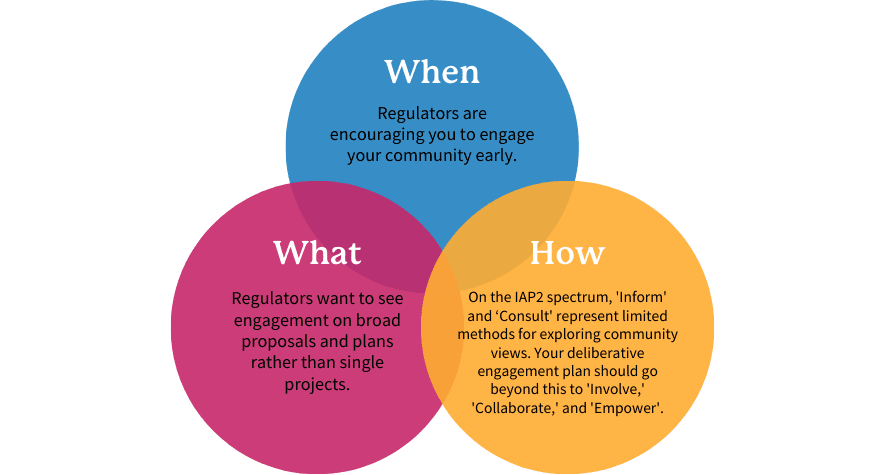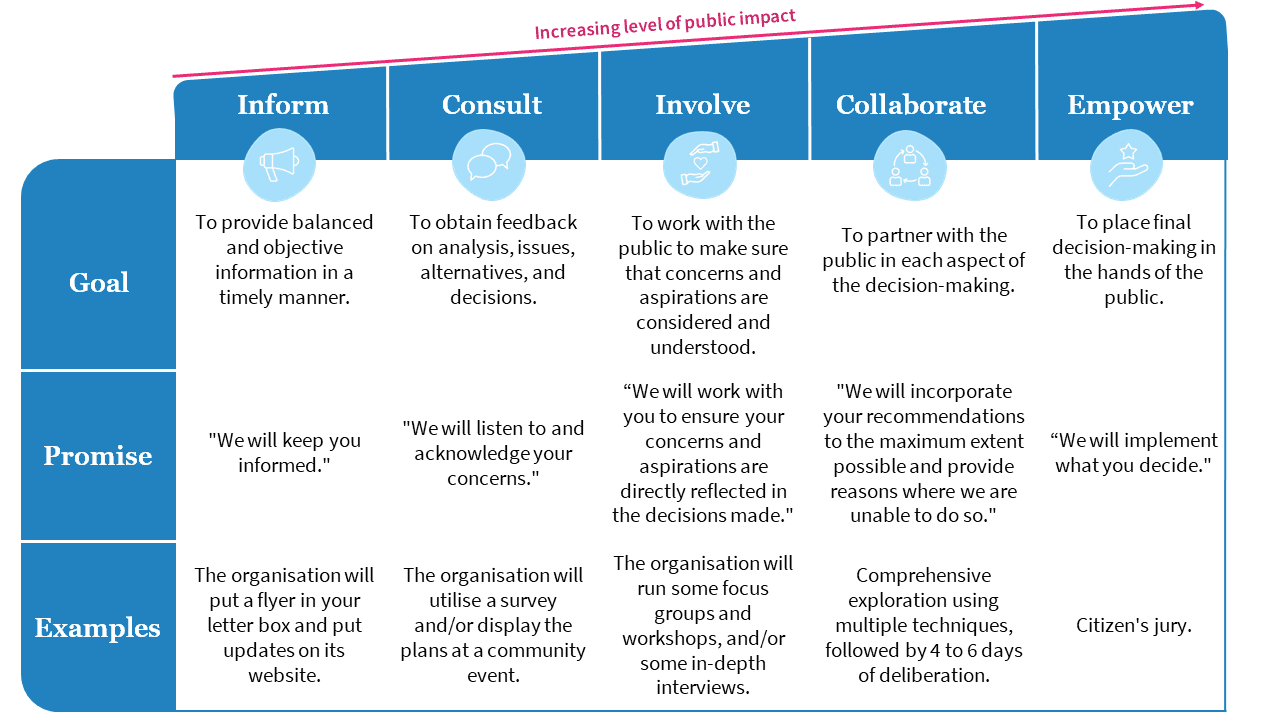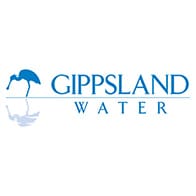Your step-by-step guide to executing action plans successfully
Unlock the power of employee feedback with strategic action planning. Learn to leverage voices, identify areas for improvement, and maximise buy-in with our ...
Benchmarking board performance: 500 board reviews later
Unlock evidence-based insights into board performanceGet the resources you need to understand the interests, concerns and priorities of your customers and community members.
Contact us todayDeliberative engagement puts customers and community members at the core of the decision-making process. The deliberative process gives time for participants to explore diverse perspectives and exchange ideas, allowing them the space to arrive at a shared set of recommendations.
The goal of deliberative engagement is to bring together a representative group of community members to provide advice on complex issues that impact the very community they represent. When used to share genuine decision-making power with customers and community, it can be a very powerful method of engagement.
To determine whether deliberative engagement is the right approach, we recommend using the following questions to assess your engagement goals and circumstances:
If you answered ‘yes’ to more than half of these questions, please contact us for advice and to discuss your engagement needs further. We are experienced in this space and can support you in selecting the right engagement approach for your specific circumstance.
Click here to download our deliberative engagement checklist.
“Carte blanche” deliberation refers to a setting where the public has no boundaries. The deliberating group could be asked to answer questions like, “What shall we do about rampant property prices in Australia?” or “How do we get more people to move to the regions?” or even “What is the fairest way to choose which drugs to put on the PBS?”. On the other hand, deliberations in regulated settings have limitations, and require a different approach in order to arrive at a situation that leaves the regulator, public and sponsoring organisation satisfied.
There is no doubt that deliberative engagement is becoming more widespread in local governments, utilities and other natural monopoly service providers in Australia.
Whether mandated or not, the march toward deliberations in regulated price setting is part of two megatrends in society:
The shift in regulator approach combined with a growing expectation of participation brings challenges for regulated entities, including:
Deliberative engagement in the regulated context needs to result in a set of recommendations that are clear, free from contradictions, and provide adequate guidance to planners without being technically prescriptive. The recommendations should articulate the community’s priorities, values and trade-offs, and allow latitude for the sponsoring organisation to implement solutions that are compatible with its proposed plans.
This model shows three dimensions as key considerations for the development of a deliberative engagement plan:


Applying an IPA2 mindset to your community engagement research
Our team are certified by the International Association of Public Participation (IAP2) and bring a toolbox of research techniques to the table. IAP2 provides a framework for assessing the appropriate level of community participation in your engagement.
In the initial phase of your research project, we will work with you to better understand your organisation’s desired or required level of community participation. There are five levels of influence across the IAP2 spectrum, and each level has an increasing impact on decisions.


Depending on your desired or required level of influence, we’ll tailor the project to achieve the goals of the best-suited engagement method.
You can read more about the IAP2 framework and other engagement resources here.
If deliberative engagement isn’t what you’re looking for, we have other ways to assist you in connecting with your community and/or customers. Depending on the level of influence your organisation is willing to share, there are various forms of engagement to explore. Your decision on the extent of community or customer involvement will shape your choice of engagement method and, consequently, the strategies you employ to achieve your goals. Here are some examples of different community engagement methods to consider:
Briefings and workshops: These sessions provide a platform for sharing information, educating your community and/or customers, and fostering discussion on key topics of interest.
Focus groups: Focus groups allow for in-depth discussions, insights, and feedback on specific issues or projects, by bringing together a select group of community members and/or customers.
Interviews: Conducting one-on-one interviews can offer a more personal and qualitative approach to understanding community and/or customer needs, concerns, and perspectives.
Surveys and polls: Utilising surveys and polls enables you to gather quantitative data and opinions from a larger segment of your community, helping you make data-driven decisions and assess public sentiment.
We offer a dedicated team with extensive expertise in both quantitative and qualitative research and engagement techniques. Our services span a wide range, including large-scale surveys, benchmarking, facilitation, community and stakeholder engagement, and thoughtful deliberative processes. Here’s what sets us apart.


Tailored Engagement Solutions: At Insync, we acknowledge the dynamic nature of community engagement. Our approach is customised for each engagement, offering online and in-person methods to heighten accessibility and inclusivity throughout the process.
Regulatory Compliance Experts: With regulatory bodies increasingly demanding proof of community input, our expertise in regulated sectors positions us as a go-to partner. We help local governments, utilities, and others meet regulatory requirements by facilitating effective deliberative engagement that ensures accountability, transparency, and power sharing between providers and communities.
Experience-Driven and Forward-Thinking: With over two decades of experience, we understand the essence of success for organisations like yours. Our portfolio spans various sectors – government, nonprofits, healthcare, and the private sphere across Australia.
Qualified and Experienced Facilitators: You’re never alone on your journey. Our team are dedicated problem-solvers and genuinely care about your success. The Insync deliberative engagement team consists of engagement practitioners qualified by the International Association of Public Participation (IAP2).
Click below to download our deliberative engagement offering guide.


We engaged Insync to design and deliver our 2022 deliberative customer summit for our 2023-28 Price Submission to the Essential Services Commission. The Insync team worked closely with the internal project team to recruit and take 30 participants from across the region through a process of learning about, exploring, deliberating over and making recommendations on three significant material issues for our business. The process was well-received by the summit panel, our Customer Reference Group (which plays an engagement oversight and assurance role) and our organisation. All of the panel’s recommendations were adopted in full and embedded into our Price Submission. Throughout the project, the Insync team was professional and reliable, demonstrating the skills and experience needed to achieve an excellent result.
Unlock the power of employee feedback with strategic action planning. Learn to leverage voices, identify areas for improvement, and maximise buy-in with our ...
Discover the invaluable tips driving Cenitex's employee engagement and transformative enhancements in our latest case study.
Join the BoardPro Webinar, where Nicholas Barnett will discuss the crucial role of the Board Skills Matrix in the director selection process.
Explore the nuances of redeveloping or reviewing your Local Government Community Vision. Find clarity and guidance here.
We use cookies to enhance your experience. Further use is considered consent. You can read more about cookies in our Privacy Policy.


You’ll always get a real person when you contact Insync.
Let's get started